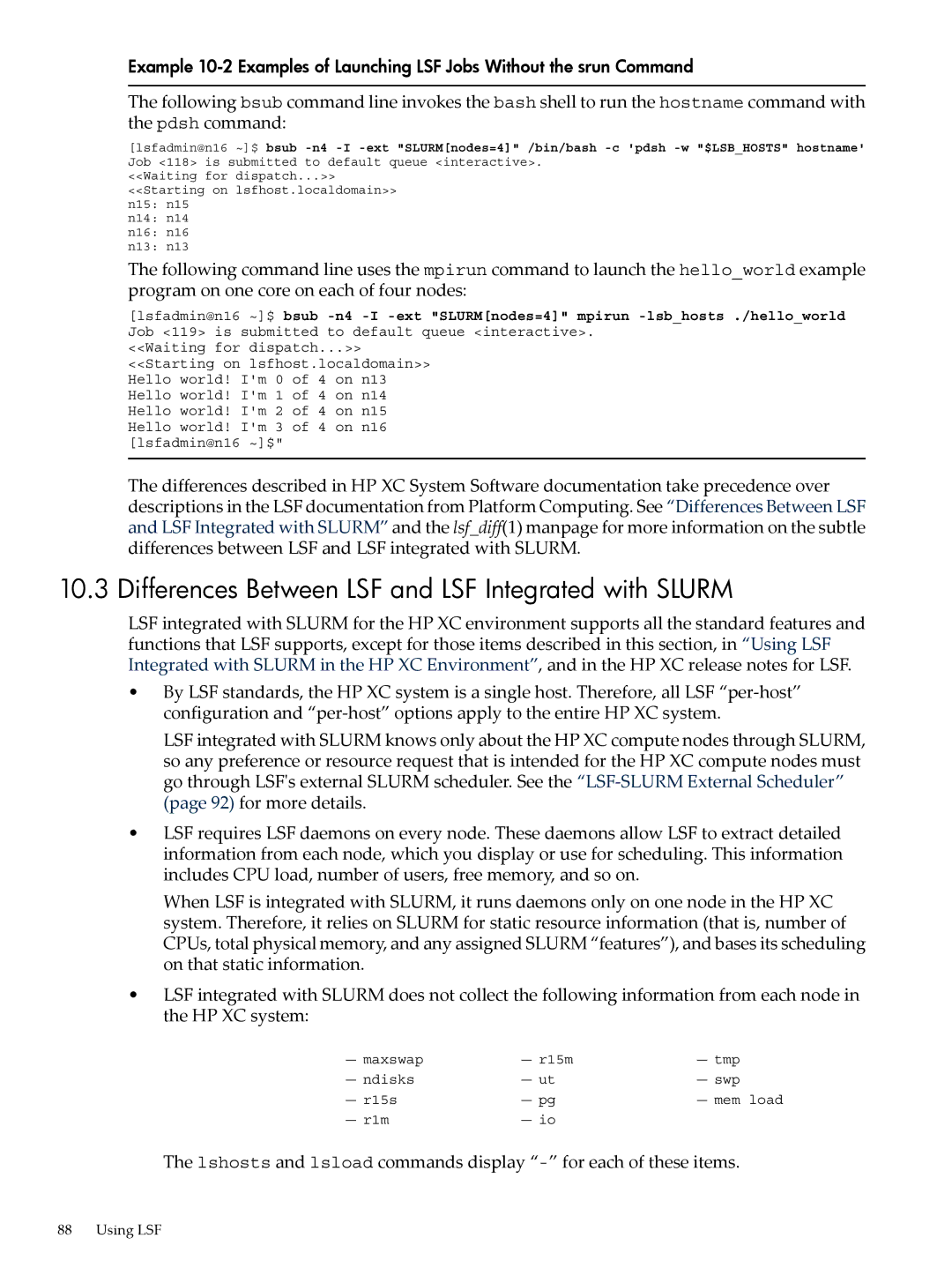
Example
The following bsub command line invokes the bash shell to run the hostname command with the pdsh command:
[lsfadmin@n16 ~]$ bsub
<<Waiting for dispatch...>> <<Starting on lsfhost.localdomain>> n15: n15
n14: n14
n16: n16
n13: n13
The following command line uses the mpirun command to launch the hello_world example program on one core on each of four nodes:
[lsfadmin@n16 ~]$ bsub
<<Waiting for dispatch...>> <<Starting on lsfhost.localdomain>> Hello world! I'm 0 of 4 on n13 Hello world! I'm 1 of 4 on n14 Hello world! I'm 2 of 4 on n15 Hello world! I'm 3 of 4 on n16 [lsfadmin@n16 ~]$"
The differences described in HP XC System Software documentation take precedence over descriptions in the LSF documentation from Platform Computing. See “Differences Between LSF and LSF Integrated with SLURM” and the lsf_diff(1) manpage for more information on the subtle differences between LSF and LSF integrated with SLURM.
10.3 Differences Between LSF and LSF Integrated with SLURM
LSF integrated with SLURM for the HP XC environment supports all the standard features and functions that LSF supports, except for those items described in this section, in “Using LSF Integrated with SLURM in the HP XC Environment”, and in the HP XC release notes for LSF.
•By LSF standards, the HP XC system is a single host. Therefore, all LSF
LSF integrated with SLURM knows only about the HP XC compute nodes through SLURM, so any preference or resource request that is intended for the HP XC compute nodes must go through LSF's external SLURM scheduler. See the
•LSF requires LSF daemons on every node. These daemons allow LSF to extract detailed information from each node, which you display or use for scheduling. This information includes CPU load, number of users, free memory, and so on.
When LSF is integrated with SLURM, it runs daemons only on one node in the HP XC system. Therefore, it relies on SLURM for static resource information (that is, number of CPUs, total physical memory, and any assigned SLURM “features”), and bases its scheduling on that static information.
•LSF integrated with SLURM does not collect the following information from each node in the HP XC system:
— maxswap | — r15m | — tmp |
— ndisks | — ut | — swp |
— r15s | — pg | — mem load |
— r1m | — io |
|
The lshosts and lsload commands display “-” for each of these items.
88 Using LSF
